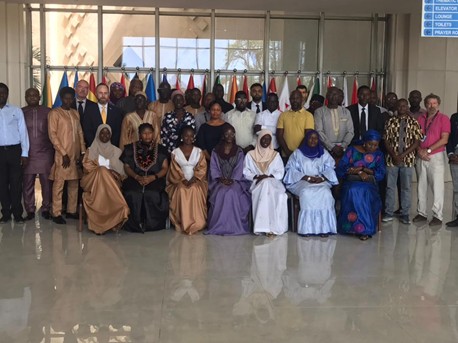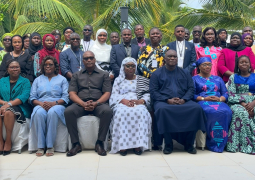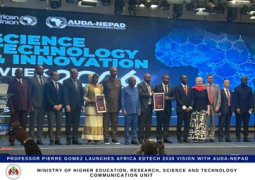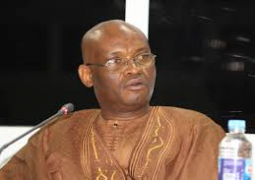
The centre was launched on Tuesday at the Sir Dawda Kairaba Jawara Conference Centre, in a ceremony attended by government officials, international partners, and key stakeholders in science and public health.
The facility, established by The Medical Research Council Unit The Gambia at the London School of Hygiene & Tropical Medicine (MRCG at LSHTM), is in collaboration with Oxford Nanopore Technologies, who signed a Memorandum of Understanding to support the initiative.
The centre will be a hub for cutting edge genomic research, education, and public health innovation.
Momodou T. Nyassi, director of Health Services at the Ministry of Health, described the launch as a "momentous milestone for the nation and the broader West African scientific community." In his keynote, Nyassi emphasised the center’s potential to transform responses to critical health challenges like infectious diseases, antimicrobial resistance, and zoonoses such as rabies.
"This is not merely a building; it is a platform for scientific empowerment,"
He said: "It will inspire a new generation of scientists and enable us to prepare for future pandemics more effectively, learning from the lessons of COVID-19."
The genomic centre will host Oxford Nanopore’s portable sequencing technology to advance both research and clinical applications. Training programmes will aim to develop local expertise in genomic sequencing and data analysis, promoting long-term sustainability.
Speaking at the event, Martin Norman, deputy British High Commissioner to The Gambia, underscored the significance of the UK-Gambia partnership in driving scientific innovation.
"The centre is a bold ambition that places genomics at the heart of regional resilience and development," Norman noted. "This partnership shows what’s possible when institutions work together with mutual respect and long-term vision."
The UK’s involvement in genomic research across West Africa, particularly during the COVID-19 pandemic, laid the groundwork for this collaboration, Norman explained. “This new centre will build on that foundation and take it to the next level supporting public health, regional collaboration, and global scientific progress.”
Richard Compton, senior vice president of Commercial Operations at Oxford Nanopore Technologies, highlighted the critical role MRCG played during the pandemic, positioning The Gambia as a global leader in genomic surveillance.
"In fact, Gambia was ranked sixth in the world for the percentage of COVID-19 samples sequenced," Compton revealed. "That is an incredible achievement for a small country with limited resources."
Compton also paid tribute to Dr. Abdul Karim Sesay, head of Genomics at MRCG, calling him the “driving force” behind the centre. “Under his leadership, MRCG became the first certified Oxford Nanopore service provider in Africa in 2019.”
“This centre is the product of years of vision and perseverance,” Compton added. “We are not just partners we are in this for the long haul.”
“The centre will serve as a training academy for researchers from across West Africa, equipping scientists with skills to tackle regional diseases and contribute to global datasets. “
He added: “One of its first projects will be a pilot programme to screen for inherited breast and ovarian cancer risk in West African women, a significant step in expanding access to genomic medicine.”
Bakary Sanneh, deputy director at the Directorate of National Public Health Laboratories, expressed optimism and gratitude following the selection of The Gambia as a host for a new Center of Excellence in Public Health.
"In a groundbreaking development," he said, "we are proud that The Gambia has been chosen for such a vital initiative. This center represents a major step forward in addressing public health challenges."
He further praised the critical support of the MRC, particularly during the COVID-19 pandemic, which helped build the lab’s capacity through training and resources.
Sanneh emphasised the importance of genomics in disease surveillance and expressed the lab's commitment to maximising the potential of the new Center of Excellence. Sanneh also announced the upcoming opening of a new lab complex in Farato and reaffirmed their ongoing efforts in staff training and capacity building.
“With contributions from Dr. Abdul Aziz and others, we now have sequencing platforms and advanced tools in place."
He concluded by affirming their dedication to capacity building. "We've already been training staff and sending students for further education, and we’ll continue doing so making the most of this historic opportunity."





